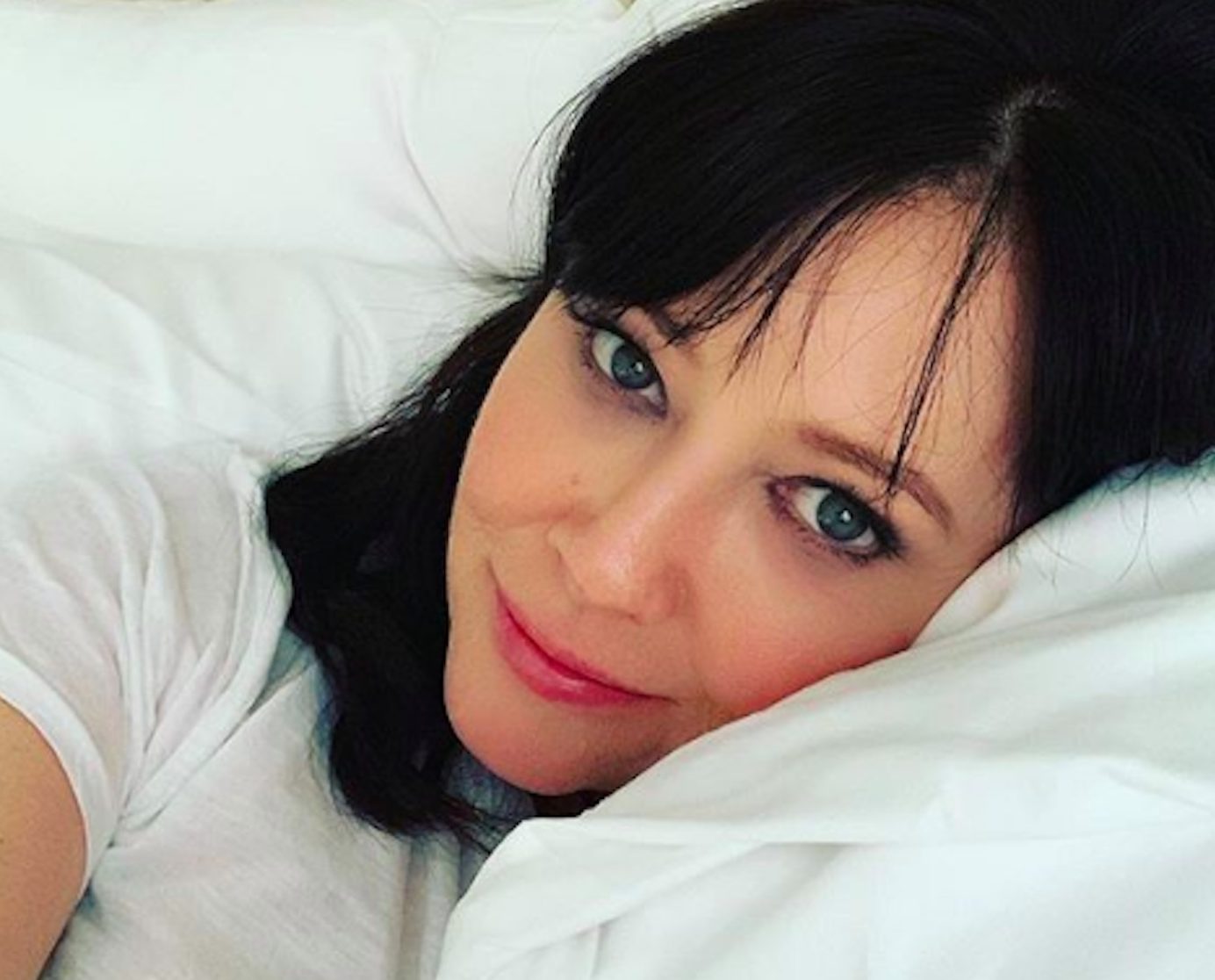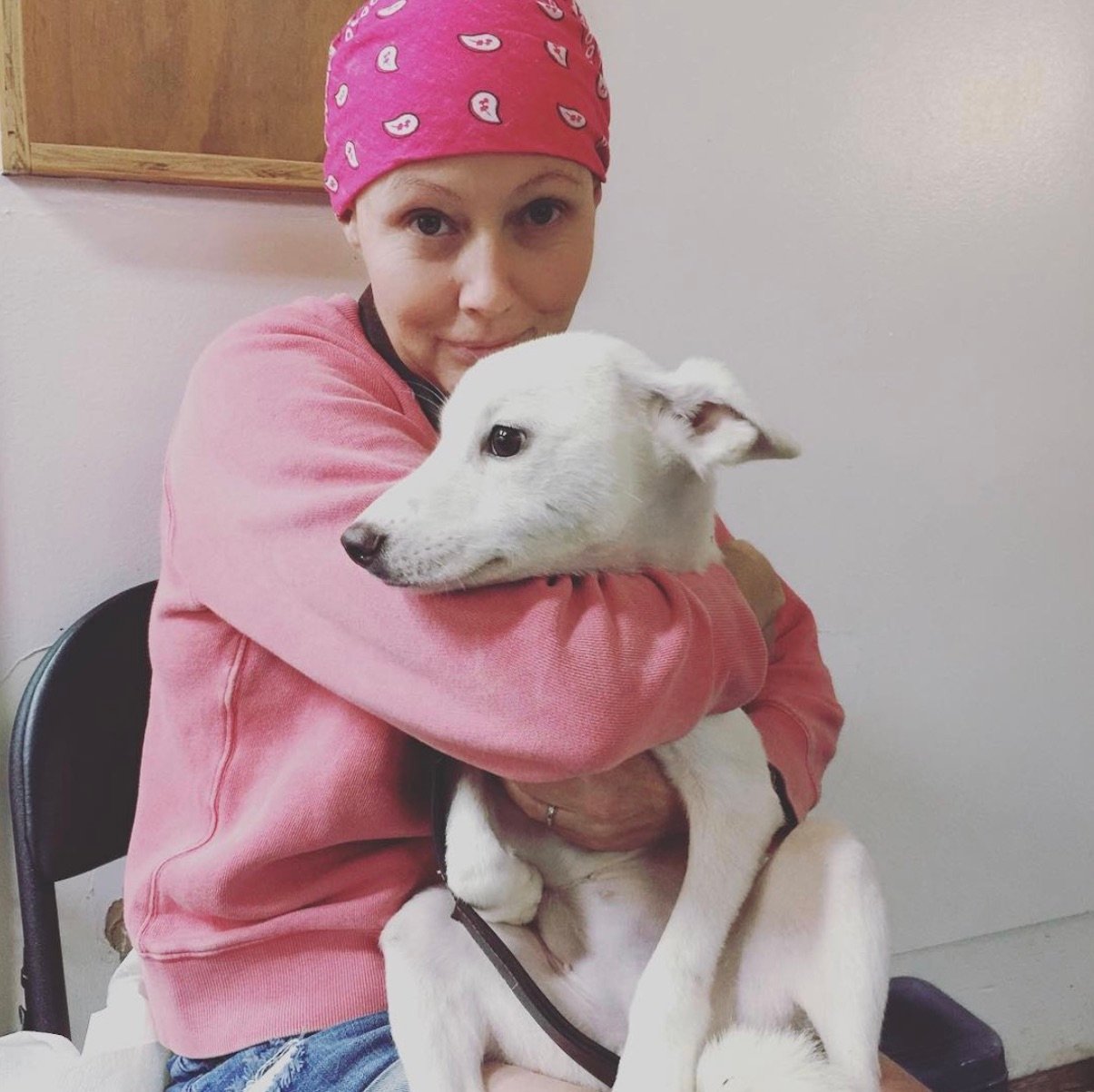Cancer's Impact on Fertility and How to Possibly Overcome It
- Resilient actress Shannen Doherty, 52, who has battled breast cancer since 2015, says she’s interested in becoming a mom. She adds her metastatic breast cancer that has since spread to her brain has complicated ambitions of motherhood and finding love following her traumatic divorce from Kurt Iswarienko.
- Various cancer treatments, including chemotherapy and radiation, can affect both men’s and women’s fertility. Still, like Taank, IVF is among several options cancer patients can turn to if they have hopes of parenthood.
- Before undergoing cancer treatment, patients must speak to their doctors about fertility preservation if they wish to have a family in the future.
- Egg, sperm, and embryo freezing are common approaches to fertility preservation, but other options exist.
Love and motherhood have been on the mind of resilient actress Shannen Doherty, whose life has been consumed by an emotional metastatic breast cancer battle in recent years. Doherty, who launched a new podcast detailing various aspects of her daily life, revealed that she wanted to become a mom.
“I would love nothing more than to be a mom,” Doherty told People Magazine.
Read MoreView this post on Instagram
“It was definitely one of those moments where you wonder if you’re going to make it at all, but it’s also where you learn the most about yourself because you have to really dig deep and gather the strength to face it head on and keep marching forward,” the “Beverly Hills 90210” actress added.
Many women like Doherty question motherhood while also battling breast cancer. Luckily, fertility preservation options exist for women diagnosed with breast cancer. However, while it’s possible to have a baby after going through cancer treatment, SurvivorNet experts say it truly comes down to the type of breast cancer you have and the kind of treatment you receive.
“I look at kids who don’t have parents at all – any amount of time [with a parent] is better than nothing. I vacillate. I’m biding my time, but in the meantime, I’ve got my brother’s seven kids and my best friend’s kids, who I kind of view as my children,” Doherty said.

The “Charmed” actress’ moment of self-reflection on motherhood coincided with worries about finding true love again.
“I don’t think I’m going to be single forever. I have to love myself and reckon with the past, really, before I can move forward, and now I’m pretty sure I’ll meet somebody – hopefully soon,” Doherty said.
She was previously married to Kurt Iswarienko until the couple split after 11 years of marriage.
“Things have not been exactly easy and smooth. They’ve been really challenging at times, and it’s hard to find yourself suddenly single in your 50s and with Stage 4 cancer. That’s a hard one,” the brave actress said.
Helping Patients With Fertility Resources
Cancer Treatment’s Impact on Fertility in Women
Common cancer treatments such as chemotherapy can destroy eggs in your ovaries. This can make it impossible or difficult to get pregnant later. Whether or not chemotherapy makes you infertile depends on the drug type and age since your egg supply decreases with age.
“The risk is greater the older you are,” reproductive endocrinologist Dr. Jaime Knopman told SurvivorNet.
“If you’re 39 and you get chemo that’s toxic to the ovaries, it’s most likely to make you menopausal. But, if you’re 29, your ovaries may recover because they have a higher baseline supply,” Dr. Knopman continued.
Radiation to the pelvis can also destroy eggs. It can damage the uterus, too. Surgery to your ovaries or uterus can hurt fertility as well.
WATCH: Family planning after cancer.
Meanwhile, endocrine or hormone therapy may block or suppress essential fertility hormones and may prevent a woman from getting pregnant. This infertility may be temporary or permanent, depending on the type and length of treatment.
If you have a treatment that includes infertility as a possible side effect, your doctor won’t be able to tell you whether you will have this side effect. That’s why you should discuss your options for fertility preservation before starting treatment.
Research shows that women who have fertility preserved before breast cancer treatment are more than twice as likely to give birth after treatment than those who don’t take fertility-preserving measures.
Most women preserve their fertility before cancer treatment by freezing their eggs or embryos.
After you finish your cancer treatment, a doctor specializing in reproductive medicine can implant one or more embryos in your uterus or the uterus of a surrogate with the hope that it will result in pregnancy.
If you freeze eggs only before treatment, a fertility specialist can use sperm and eggs to create embryos in vitro and transfer them to your uterus.
When freezing eggs or embryos is not an option, doctors may try these approaches:
Ovarian tissue freezing is an experimental approach for girls who haven’t yet reached puberty and don’t have mature eggs or for women who must begin treatment immediately and don’t have time to harvest eggs.
Ovarian suppression prevents the eggs from maturing so they cannot be damaged during treatment.
For women getting radiation to the pelvis, Ovarian transposition moves the ovaries out of the line of treatment.
In addition to preserving eggs or embryos, positive research has shown that women with early-stage hormone-receptor (HR) positive breast cancer were able to safely pause endocrine therapy (ET) to try to get pregnant, and they did not have worse short-term recurrence rates than people who did not stop endocrine therapy.
How Doherty’s Coped With Breast Cancer
Shannen Doherty’s initial breast cancer diagnosis arrived in 2015 after she discovered a lump in her breast. For treatment, she had hormone therapy, a single mastectomy (the removal of all breast tissue from one breast), chemotherapy, and radiation.
In 2017, she achieved remission status, but the disease returned two years later in 2019. This time around, her breast cancer was metastatic, or stage 4.

Having metastatic breast cancer means the cancer has spread, or metastasized, beyond the breasts to other parts of the body. It often spreads to the bones, liver, and lungs but can also spread to places like the brain.
While treating advanced breast cancer, the goal of treatment is to keep you as stable as possible, slow the tumor growth, and improve your quality of life.
WATCH: Aggressive breast cancer in younger women.
As cancer treatments improve year over year, so does the number of people battling this form of cancer that spreads to the brain, says Dr. Michael Lim, who is the Chair of the Department of Neurosurgery and a board-certified neurosurgeon specializing in brain tumors at Stanford Medicine.
According to Dr. Kimberly Hoang, a board-certified neurosurgeon at Emory University School of Medicine, a craniotomy procedure like Doherty underwent earlier this year is “a procedure to cut out a tumor” on the brain that may be particularly useful “if the tumor is causing symptoms or if it’s large.”
Since undergoing brain surgery, Doherty has focused on enjoying precious time with loved ones as she continues battling stage 4 cancer.
Doherty’s cancer then spread, or metastasized, to her brain. As a result, she’s undergone both radiation and surgery in the form of a craniotomy to improve her prognosis.
Questions for Your Doctor
If you’re wondering how your cancer treatment may affect your fertility and what options are available to you, consider asking your doctor these questions, according to the National Cancer Institute:
- Could my treatment lead to infertility?
- Are there other recommended cancer treatments that might not cause fertility problems?
- Which fertility preservation options would you advise for me?
- What fertility preservation options are available at this hospital? At a fertility clinic?
- Would you recommend a fertility specialist (such as a reproductive endocrinologist) I could talk with to learn more?
- What are the chances that my fertility will return after treatment?
Learn more about SurvivorNet's rigorous medical review process.
